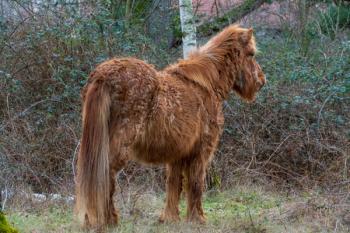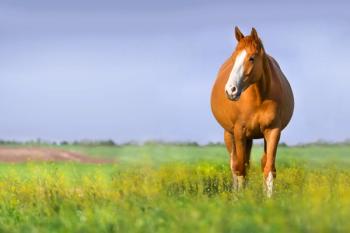
National database to keep statistics on racetrack injuries
Horse injuries at the nation's racetracks might be reduced significantly if track veterinarians and officials had better informational tools in making pre-race assessments of horses and track conditions, experts say.
Horse injuries at the nation's racetracks might be reduced significantly if track veterinarians and officials had better informational tools in making pre-race assessments of horses and track conditions, experts say.
Those tools should be forthcoming in the next few months in the form of a national racetrack injury-reporting database, says Dr. Mary C. Scollay, a Fort Lauderdale, Fla., veterinarian who has been spearheading the initiative since it was proposed at the "Welfare and Safety of the Racehorse" Summit sponsored by the Grayson-Jockey Club Research Foundation last fall in Lexington, Ky.
"Regulatory vets already have seen and critiqued the forms, and some are using them already," Scollay says, adding that about 25 tracks so far have agreed to contribute injury statistics to the database, with more expected to follow.
The database was to be launched June 1, just after press time.
Scollay reported on its progress during the annual Association of Racing Commissioners International (RCI) meeting in Jackson Hole, Wyo., the last week of April.
She managed a similar form of injury-data collection system, on a smaller scale, over the winter at Gulfstream Park in Hallandale, Fla. She is chief veterinarian there, and at Miami's Calder Race Course.
"It (the national database) will provide a tremendous amount of valuable information, including frequency and types of racetrack injuries and their outcomes – an epidemiological survey that credible researchers can access," Scollay explains. "Ultimately it will allow for a statistical analysis of many factors, including track surfaces and conditions, that might help regulatory vets identify markers during pre-race assessments that could prevent some injuries."
An analysis of data collected at tracks nationwide might be available in about six months, but injury statistics for individual tracks won't be released unless track officials choose to do so. However, the data will allow individual tracks to compare their standing against the national figures.
"Because of the wide variation among racetracks, horse populations vary significantly from one track to another," Scollay says. "The database will simply provide mean-average, or median-range, figures. We have to compare apples to apples, providing information that individual tracks can use to assess their own risks. In the end, the whole idea is that everyone wants to do better; no one wants to see horses injured."
At the RCI meeting in April, the racing commissioners also adopted three model rules, one of which would ban the use of horseshoes with toe-grabs of more than four millimeters in length.
William Casner, chairman of the Thoroughbred Owners and Breeders Association (TOBA), cited research from California indicating the presence of toe-grabs in about 90 percent of catastrophic racetrack injuries. Scollay says she found Casner's report "compelling."
The model rule would carry no penalty for owners using the banned toe-grabs, but would prevent their horses from competing in races.
Another model rule covered the use of anabolic steroids, providing fines ranging from $500 to $1,500 for violations, and a third would require the use of safety reins helping jockeys keep control of horses should the principal reins break.
Model rules are guidelines for various racing jurisdictions, which may or may not accept them as written, or adopt them with some variations.
Newsletter
From exam room tips to practice management insights, get trusted veterinary news delivered straight to your inbox—subscribe to dvm360.




